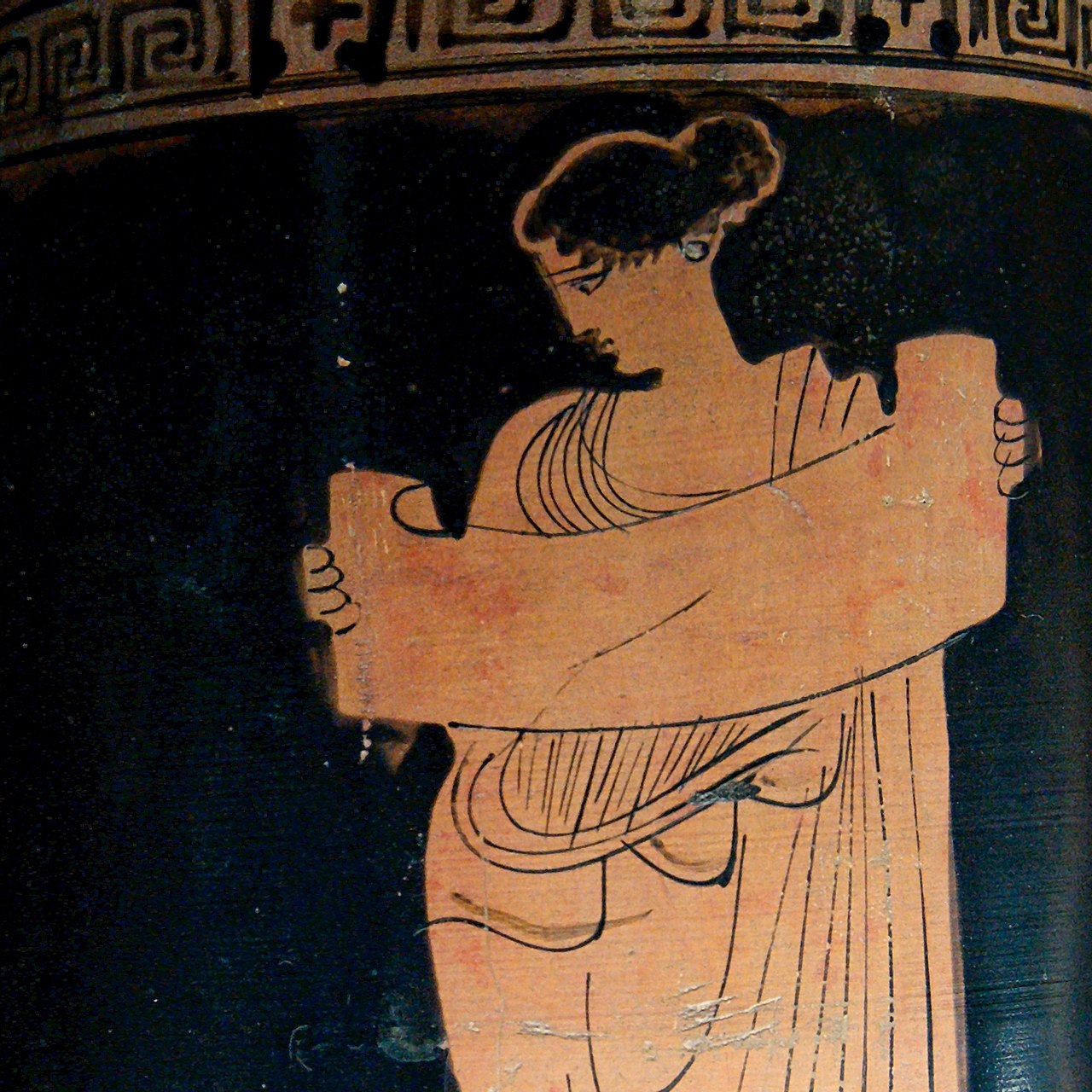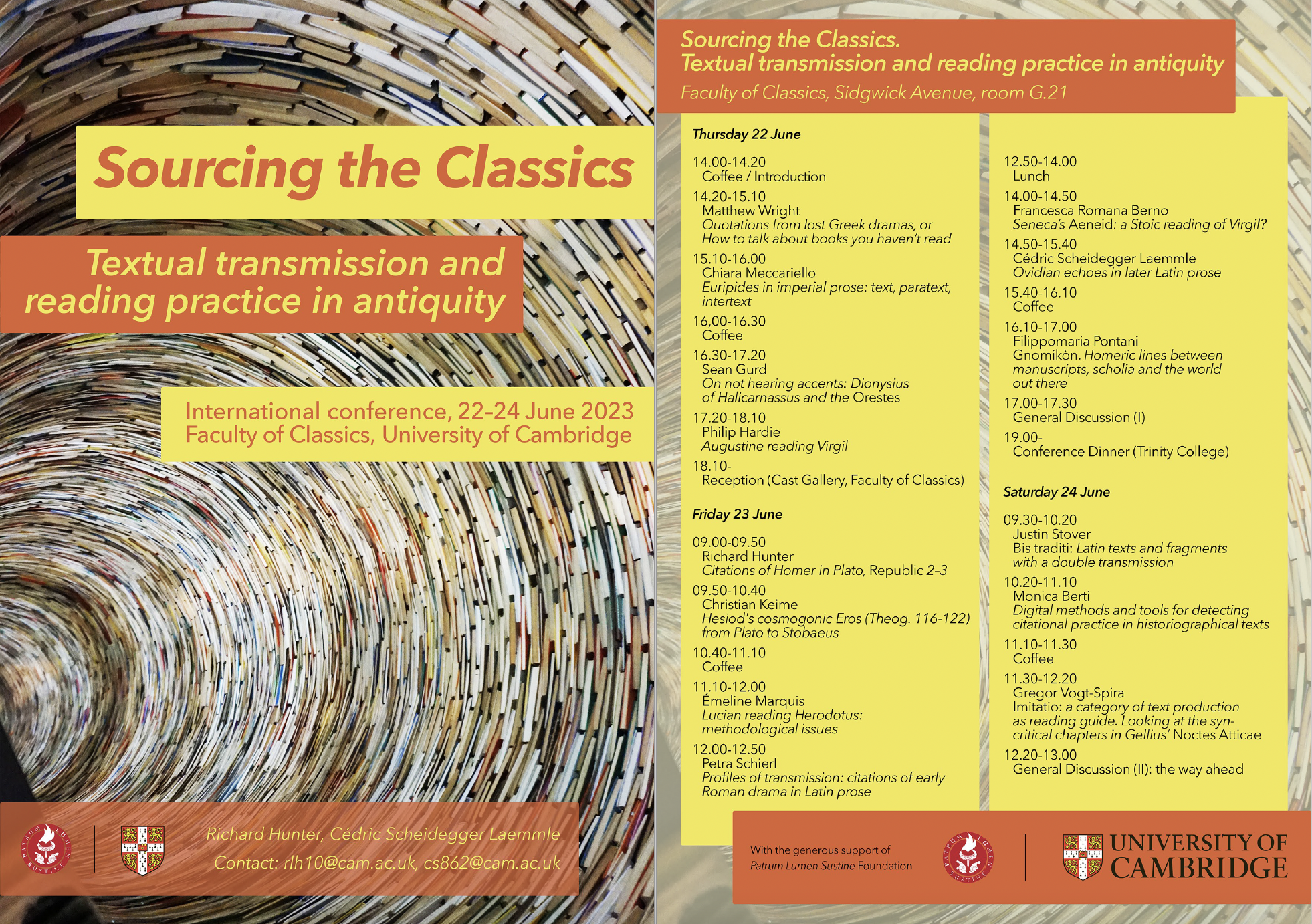Modes of Reading and the Transmission of Texts in Antiquity
The Faculty is host to this project conducted by Professor Richard Hunter, Regius Professor of Greek Emeritus, with Dr Cédric Scheidegger Laemmle as Co-Investigator.
The project’s aim is to put the study of ancient literate culture on a new footing, by paying proper attention to a major source for the history of reading and interpretation which remains largely un-tapped: the anthologies, lexica and miscellaneous works, both pagan and Christian, of the imperial period and later antiquity – Plutarch, Aulus Gellius, Athenaeus, Clement of Alexandria, Macrobius, Stobaeus etc. Such texts preserve hundreds of quotations and extracts from classical texts, both those which have also survived in medieval manuscripts and those which have been otherwise lost in the course of transmission. In the former case, much of this material has not even been systematically collected, and scholars have on the whole tended to ignore this so-called ‘indirect tradition’, except when it seems to be useful for establishing the correct text of a classical author. Important as such matters of textual criticism are, however, the quoting texts themselves offer a rich opportunity to study what was being read and in what forms, how texts were interpreted and exploited in antiquity, which texts (or citations) tended to ‘travel together’ and when particular texts begin to disappear from view. Careful attention to this ‘indirect tradition’ offers rich dividends for the history of books, of canon formation, and of reading and interpretation in antiquity. We are also constantly reminded of the contingency of our own approaches to ancient literature. Modern reading practices, which have, in various ways, privileged unity and coherence as virtues of the literary text, are challenged by the apparently radically different reading practices of antiquity and the Byzantine period.
Musa reading a volumen (scroll), at the left an open chest. Attic red-figure lekythos, ca. 435-425 BC. From Boeotia
The project works across two major traditional fault-lines in the study of antiquity and the early medieval period, namely Greek ~ Latin and non-Christian (‘pagan’) ~ Christian. We are interested in whether citation and the use of the past follows roughly similar patterns in the two languages, that is in the east and west of the Roman empire, and how Christian authors present classical literature to an audience which does not share their assumptions.
‘Modes of Reading and the Transmission of Texts in Antiquity’ has received generous first-phase funding from the Patrum Lumen Sustine Foundation of Basel (PLuS). The project hosted a major international conference, ‘Sourcing the Classics: textual transmission and reading practice in antiquity’, in the Faculty in June 2023.
‘Sourcing the Classics: textual transmission and reading practice in antiquity’ Flyer


